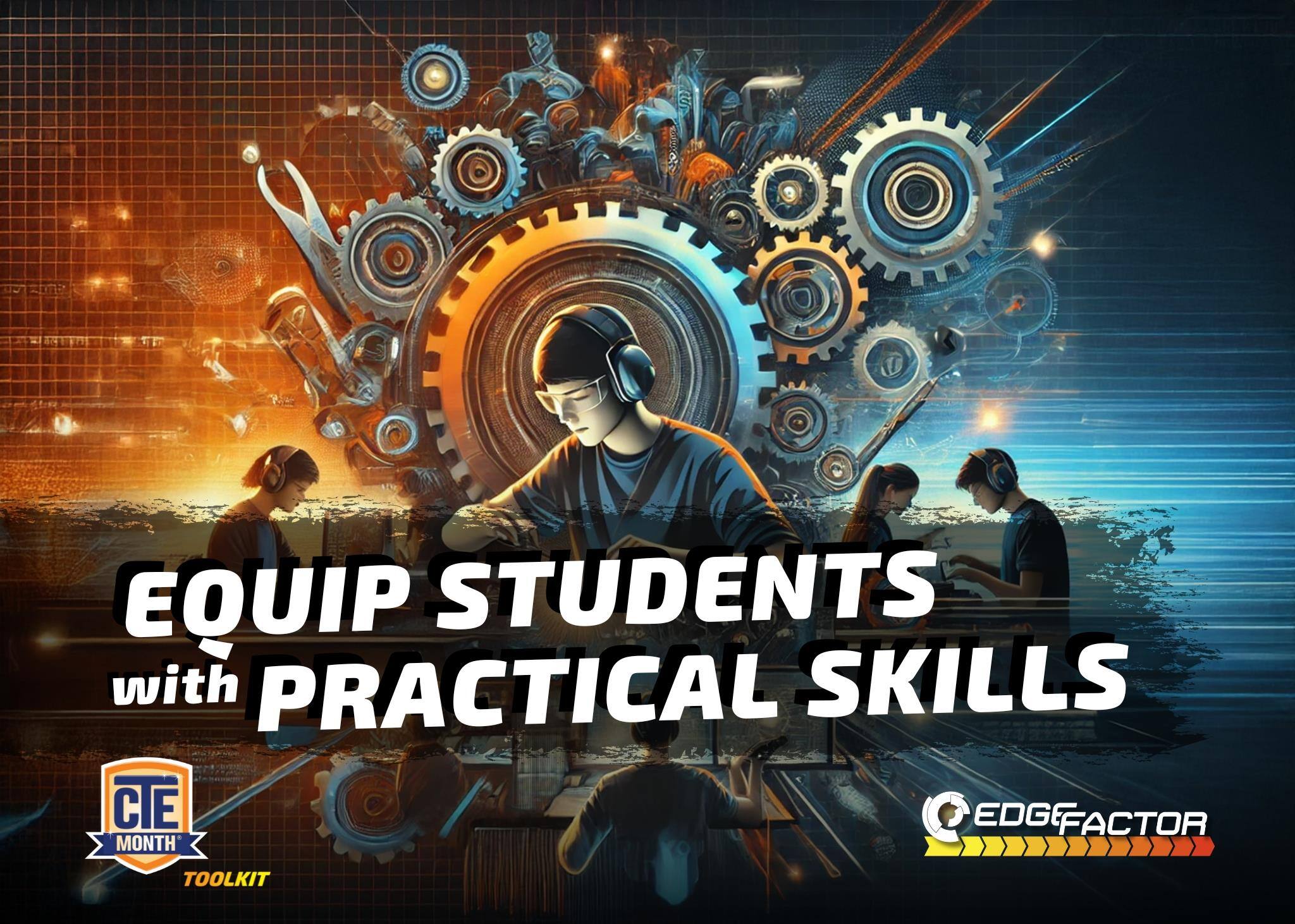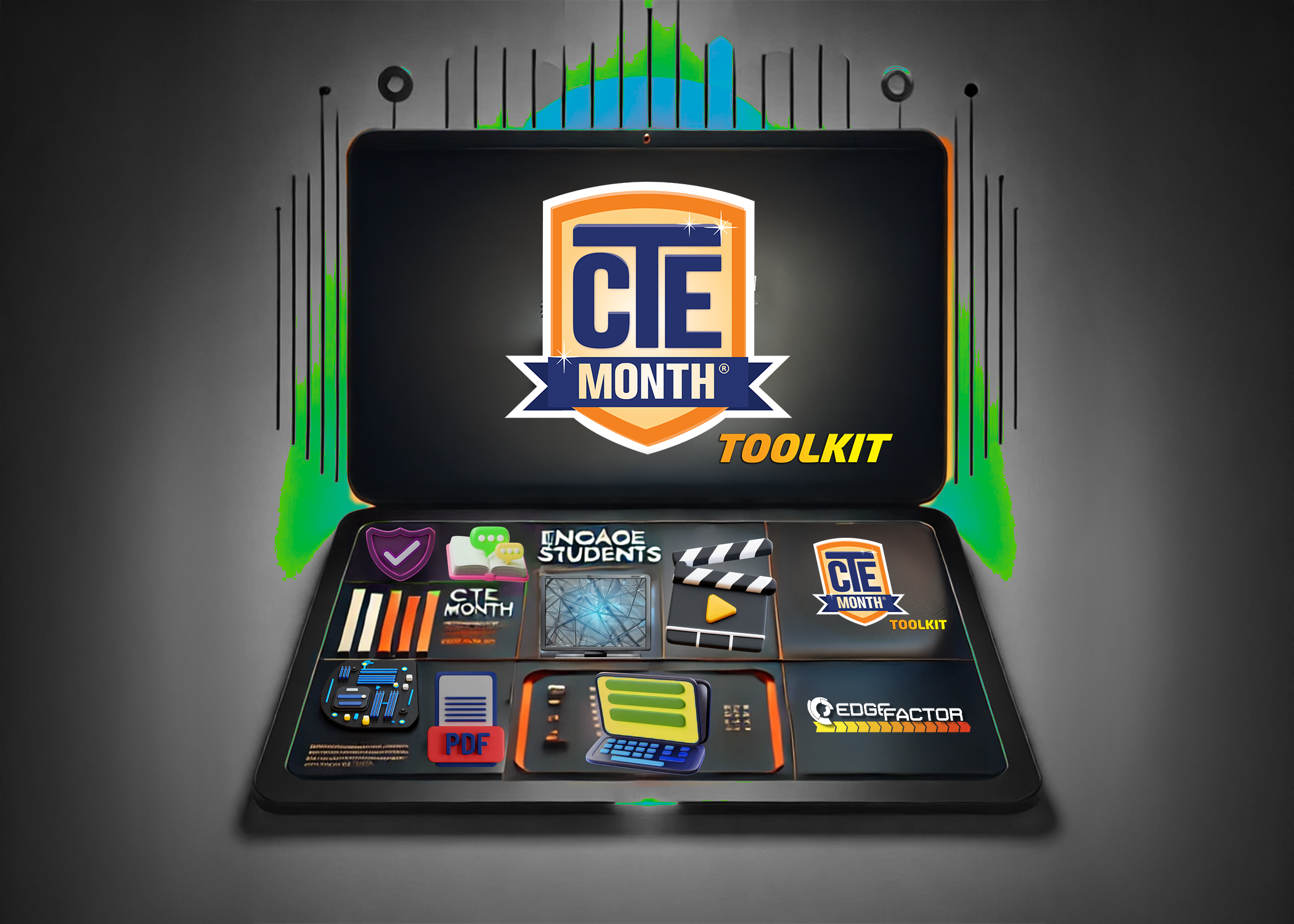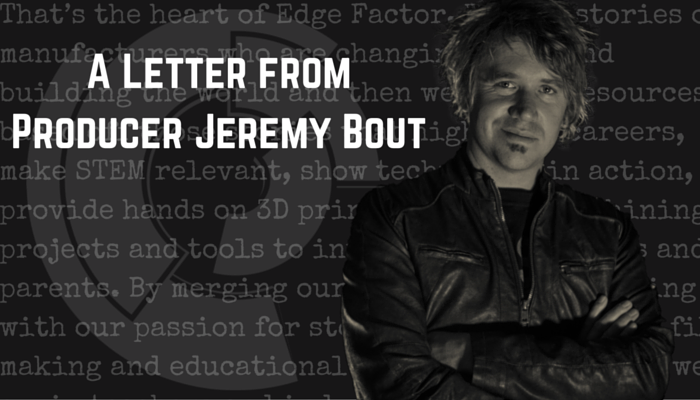
In 2001: A Space Odyssey, an ancient primate sits beside the skeleton of an ox, picks up a hefty thigh bone, and cautiously hits the other bones, splintering them into pieces. The chimp imagines how the new tool could be used to hunt bigger and stronger game. The chimp gets so excited, they throw their the bone up into the sky, where it flips end over end and transforms into a spaceship: thousands of years of technology pass in the blink of an eye.As humanity starts to live with artificial intelligence, we ponder what makes us human. What keeps us human, and what ties us to our past? How do we prepare for a world that’s changing? How do we work in a way that is meaningful to us?
When you stand in front of a classroom of students, you might wonder if your lessons will be of use to kids who will one day remotely, on computers and phones, or whatever tool comes next.
When you’re standing behind a booth at a job fair, you might wonder how many students will stop by your table instead of the smooth, Silicon Valley employer in the neighboring booth.
What if you could look ahead into the future and know that what you’re teaching to students would be valuable? What if you could know the approach that would 100% bring young people to that job fair booth?
I
n a way, you can look into the future and know what skills will be needed, by examining the jobs and pursuits that never change.
What Are The Skills We Need Today That Will Still Be Needed Tomorrow?
When you enroll in technical education, you can learn a trade as old as civilization. The great thing about a technical education is you’re not just learning one particular skill. You’re learning about life. If you study the culinary arts, you may not end up working as a chef, but the lessons you learn while standing over broths and watching bread rise, aren’t all about cooking. You learn to work as a team. You learn to gain attention for detail, and develop problem-solving abilities. You also learn why people love good food in the first place: you learn what the results of your labor are for.
These are skills that a robot can never take away.
To help young people learn life skills instead of just theory they need hands-on experiences. To share how a piece of bone could one day be more than it appears, and how life can pass in the blink of an eye, access Edge Factor’s CTE Month Toolkit to showcase how CTE programs engage students in learning the skills of today, yesterday, and tomorrow.
The media-rich experience includes a keynote presentation by Jeremy Bout, President and Founder of Edge Factor, cinematic documentaries sharing stories of CTE students working together to solve real world problems. This toolkit also include short introductory videos of CTE programs, and Career Profile videos to showcase how the skills learned in CTE translate to skills used on the job in various careers.
Get your turnkey educational toolkit and inspire students to become problem solvers, builders, and thinkers.
This toolkit will be available for FREE until February 28, 2025.
Get Connected. Stay Connected.
Sign up for the Edge Factor Newsletter and follow us on social media to receive the latest updates on features, events, and initiatives that will help you build the future workforce.
Not an Edge Factor Member Yet?
If you are interested in learning more about what an Edge Factor membership can unlock, create your free account or register for an upcoming live webinar.
Questions? Feedback? Contact us.
Email: info@edgefactor.com or message us on the Live Chat. We’d love to hear from you.



.jpg)
.png)
.png)
.jpg)